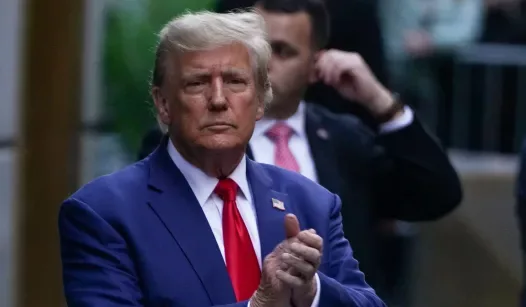In a notable legal development, a federal appeals court has overturned a staggering half-billion-dollar fine previously imposed on former President Donald Trump in a civil fraud case. This ruling marks a significant victory for Trump, who has faced numerous legal challenges since leaving office.
The case originated from allegations that Trump and his company inflated the value of their assets to secure favorable loans and insurance deals. The initial ruling, which resulted in the hefty fine, was seen as a landmark decision that could have set a precedent for how financial misrepresentation is treated in the business world.
The appeals court’s decision to reverse the fine is not just a win for Trump but also raises questions about the legal standards applied in civil fraud cases. Legal experts suggest that the ruling could have broader implications for similar cases in the future, particularly those involving high-profile figures and corporations.
Supporters of Trump view this ruling as a validation of his business practices and a rejection of what they perceive as politically motivated legal actions against him. They argue that the case was part of a larger pattern of attacks aimed at undermining Trump’s credibility and reputation.
On the other hand, critics argue that the decision could undermine efforts to hold powerful individuals accountable for financial misconduct. They express concerns that this ruling may embolden others to engage in similar deceptive practices without fear of significant repercussions.
As the legal landscape continues to evolve, this case serves as a reminder of the complexities surrounding accountability in business and politics. The implications of this ruling will likely be analyzed and debated in the coming months, as both supporters and opponents of Trump assess its impact on the former president’s ongoing legal battles and public image.
In summary, the appeals court’s decision to throw out the half-billion-dollar fine against Trump is a pivotal moment in a case that has garnered national attention. It highlights the intersection of law, politics, and business in America, and sets the stage for further discussions on accountability and justice in the realm of financial practices.
